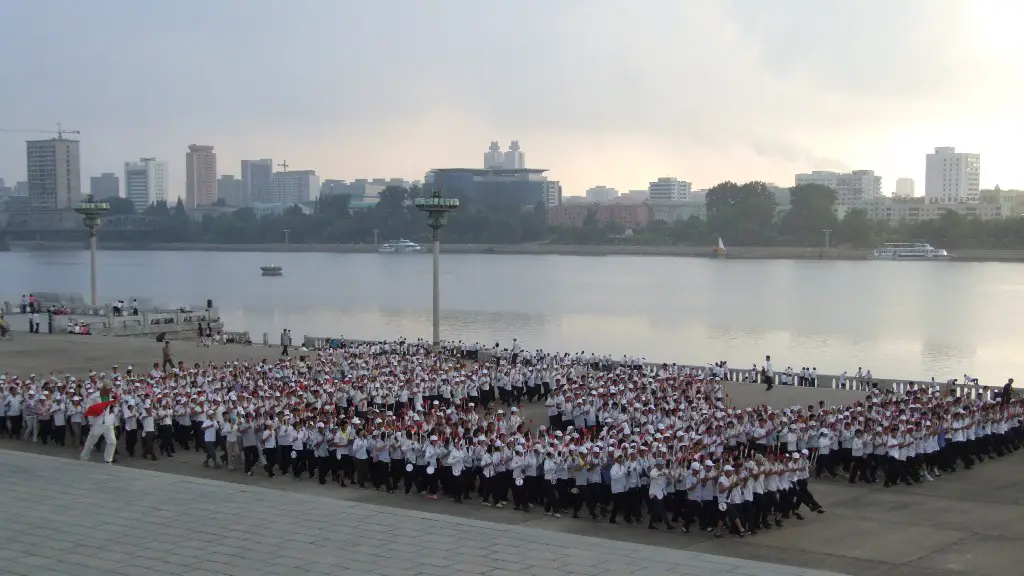North Korean Health System
Thousands of North Koreans are currently estimated to be living with blindness, due to a lack of access to proper healthcare and resources in the country. The North Korean healthcare system is relatively inadequate in comparison to those of neighboring countries. With the state’s expenditure on healthcare decreasing significantly over the last several decades, the quality of care has suffered immensely. Access to basic healthcare services such as eye-checkups and glasses or contacts remain out of reach for most of the population, while advanced treatments of any kind are virtually non-existent.
Since the early 2000s, the number of North Koreans living with blindness has been steadily increasing. This is due largely to the combination of a rapidly aging population combined with a weak medical infrastructure and lack of knowledge of – and access to – proper preventive care including greater use of eye care.
Economic Impact
The effects of this phenomenon are concerning, not only in terms of the well-being of the individuals affected, but also economically. Blindness can affect an individual’s ability to participate in society, and thus their overall livelihood. Without a job, people are unable to make an income, leaving them and their families more vulnerable to poverty, a far too common reality in North Korea.
This has a deep effect on the country, as individuals living in poverty are more likely to suffer from a lack of access to resources such as proper nutrition and education.
Sanctions
The international sanctions imposed on North Korea are also thought to be a contributing factor to the increased rate of blindness in the country. These sanctions prevent North Korean citizens from obtaining certain products and resources from abroad – such as contact lenses, glasses and medications.
Often, the prices of these products have spiked, leaving them out of reach for the majority of the North Korean population. Moreover, North Korean citizens are not allowed to leave the country, effectively prohibiting them from seeking medical care from international institutions or organizations.
Data Collection
The assessment and tracking of visual-related conditions is believed to be limited due to lack of resources, inadequate personnel and the lack of any comprehensive, reliable data collection and analysis in North Korea.
In addition, individuals living with disabilities in North Korea often face social stigma, leading to a reluctance to come forward and admit to their disability, in fear of being discriminated against.
International Projects
Various organizations, both domestic and international, are leading projects to improve the eye health of North Koreans. These include campaigns to raise awareness through education seminars and providing basic medical services such as ophthalmology clinics and free vision screenings, as well as providing equipment and resources to aid in the diagnosis and treatment of visual impairments.
These organizations have had some success in providing access to proper eye care for the North Korean population and in reducing the number of cases of blindness.
Diplomatic Endeavours
The international community has also been persistent in lobbying for greater investment in the North Korean health system from international bodies, as well as from corporations and foreign governments. Such efforts have included talks with the North Korean government to secure more resources for healthcare, as well as providing greater access to external aid and medical professionals.
These dialogues have had some small successes, with the North Korean government unveiling plans to extend medical services to their rural areas, thereby providing access to a higher level of care than what is currently available in these areas.
Potential Solutions
Ultimately, the advancement of preventative and restorative eye care in North Korea can come from a combination of international aid, economic investment, and diplomatic relations. However, even still, more work needs to be done.
As the world witnesses a growing number of cases of blindness in North Korea, there is an urgent need for a more sustainable long-term solution. This means creating an environment which enables the North Korean people to access proper eye care, one that is not affected by externalities such as sanctions or the lack of resources.
Foreign Support
Foreign governments, aid organizations, and other non-governmental organizations can play a role in providing North Koreans with greater access to eye care. These organizations can provide resources, expertise, and advocacy to improve the quality and accessibility of eye care in North Korea. Such advocacy efforts can focus on lobbying international bodies, governments, and various organizations to provide more funding and aid to North Korea, with a focus on improving the health care system in the country.
These efforts can also include providing education and training resources, helping to ensure that healthcare professionals in North Korea have the necessary resources and knowledge to provide quality care to their patients.
Concluding Thoughts
The growing number of cases of blindness in North Korea is a tragedy and a testament to the inadequate health system in the country. However, there are a variety of measures that can be taken to help improve eye care in the country. Through international aid, economic investment, and diplomatic relations, the world can come together to provide the North Korean population with greater access to the resources and treatments they need to restore and maintain their vision for years to come.




